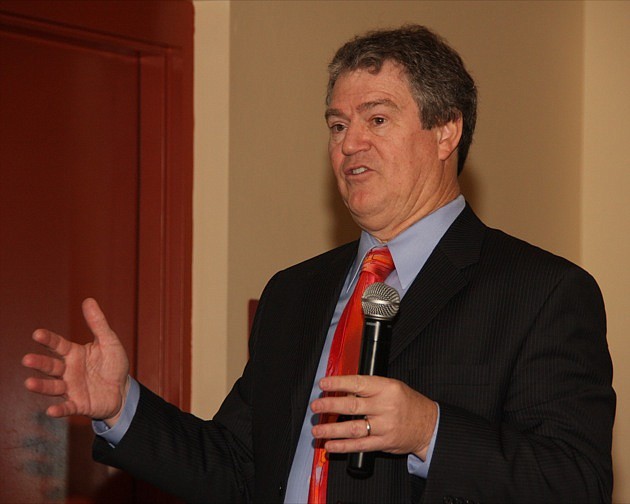- December 23, 2024
-
-
Loading

Loading

Ignore the doom and gloom. Florida could exceed 5% economic growth this year, says Gregory Miller.
It pays to listen to Miller, SunTrust Bank's chief economist, who has been an astute observer of Florida's economy for 30 years. His housing forecast of further price declines for Florida in 2007 was right on the mark, for example.
Federal spending, increased business investment and low inflation this year will combine to spark a strong recovery. “Florida may be coming back faster than the rest of the country,” Miller says. Why? “Repeat after me: Stuff is cheap,” he says.
Housing is less expensive and office and warehouse space is plentiful and reasonably priced. “This turns out to be a pretty good time to expand,” says Miller, who recently discussed his optimistic forecast at a gathering of the Urban Land Institute in Bonita Springs.
Miller brushes off concerns that population growth in Florida has stalled or declined. The drop in net migration to the state is simply a phenomenon of economic contraction. “The fact that something changes doesn't assure it continues,” he says. “The fact that it goes down increases the chances it goes up.”
There's no reason to think that Florida's history of economic sharp highs and lows won't continue. “The deeper you fall, the stronger you come out,” Miller says.
Florida remains a destination for business expansion and economic migrants from other parts of the country, such as the Midwest, that aren't as well positioned for future growth. “This was a good place to be before housing fell apart,” Miller says.
What's more, mobility of professionals and retirees will increase as they have recovered two-thirds of the $22 trillion in household wealth they lost during the downturn. “The consumer side is in remarkably good shape,” Miller says.
Other signs of recovery in Florida include increased trade at ports, activity at airports has stabilized and anecdotes of companies drafting expansin plans.
Nationally, Miller says business spending will boost growth over the 5% mark, a forecast that's more optimistic than many of his peers. “Retained earnings are at a historic high,” Miller says, and private equity firms have raised $400 billion to invest.
Businesses need to replace aging capital equipment, especially computers. And because of the economic contraction, inventories are lean. “Inventory [replacement] alone will give us a significant pop,” Miller says.
Miller isn't worried about inflation this year, but warns that it could be a problem in 2011. Some economic simulations he's modeled forecast inflation of 9% or higher under worst-case scenarios.
There are two risks to Miller's positive forecast: restrictive credit and oil at $100 a barrel. “We're screwed” if business access to credit continues to be as difficult to obtain as it is today, Miller says with trademark bluntness. “One hundred dollar oil is really, really dangerous,” he adds, suggesting that alone could push the economy back into recession.
Barring that, Miller says the economic growth may be stronger than 5% in 2010. He points to the last significant recession in the early 1980s, which saw annual growth rebound 6.6%. “We're on track to have a significantly stronger economy than what you're reading,” Miller says.
—Jean Gruss